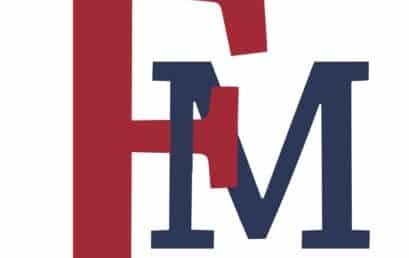PHYS 306 – Computational Physics
Prerequisites/Corequisites: Credit Hours: Min: 3; Max: Description:
PHYS 201 – Technical Physics II
Prerequisites/Corequisites: Take MATH-201. (Required, Previous or concurrent). | Take PHYS-201L. (Required, Concurrent). Credit Hours: Min: 4; Max: Description: Calculus-based introduction to classical mechanics and dynamics. Topics include vectors and vector notation; Newton’s Three Laws of Motion; force; motion in one, two, and three dimensions; linear momentum; torque; rotational motion; angular momentum; work-energy; kinetic and potential […]
MATH 305 – Linear Programming
Prerequisites/Corequisites: Take MATH-304 MATH-213 or CS-226. (Required, Previous). Credit Hours: Min: 3; Max: Description: Introduction to the theoretical, computational, and applied aspects of the subject. Topics covered include the Mathematical model of linear programming, convex sets and linear inequalities, the simplex method, duality, the revised simplex method, and several of the many applications. Computer solutions […]
MATH 201L – Calculus I Workshop
Prerequisites/Corequisites: Take MATH-201. (Required, Concurrent). Credit Hours: Min: 1; Max: Description: Intensive calculus workshop for students enrolled in Mathematics 201. Students work collaboratively in small groups on problems that emphasize the key ideas of calculus. The workshop will also introduce students to technology that can automate and help visualize calculus concepts. Assessed as S (Satisfactory) […]
ENGR ELECTIV – Engineering Elective
Prerequisites/Corequisites: Credit Hours: Min: 4; Max: Description:
ENGR 497 – ENGR: Special Topics
Prerequisites/Corequisites: Take ENGR-101. (Required, Previous). Credit Hours: Min: 1; Max: 3 Description: Study of topics not found in other courses. Open to sophomores, juniors or seniors majoring in Industrial Engineering. A maximum of three semester hours may be earned. Academic Committee approval required for each seminar and practicum. All individual research projects are reviewed by […]
ENGR 482 – Mechanical Engineering Senior Design
Prerequisites/Corequisites: Take ENGR-370 ENGR-411. (Required, Previous). Credit Hours: Min: 4; Max: Description: This course serves as the capstone design experience for mechanical engineering students. The course involves the design and development of solutions to real-world mechanical engineering problems. Students will demonstrate the ability to work in teams and solve problems, which include multiple realistic constraints […]
ENGR 480 – Industrial Engineering Senior Design
Prerequisites/Corequisites: Take ENGR-310 ENGR-420 ENGR-467. (Required, Previous). | Take ENGR-330 ENGR-356 ENGR-470. (Required, Previous or concurrent). Credit Hours: Min: 4; Max: Description: The capstone design course for industrial engineering majors. Survey of methods, tools, and techniques used to plan, communicate, manage and control projects, and work on teams. Students work in teams to develop a […]
ENGR 470 – Facility Design
Prerequisites/Corequisites: Take ENGR-350 ENGR-373 ENGR-468. (Required, Previous). Credit Hours: Min: 3; Max: Description: Theory and concepts involved in model formulation for design and analysis of facility plans. Includes facility layout, facility location, and material handling system design. Application of quantitative tools and techniques for flow analysis, layout planning, and automated material handling system design.
ENGR 402 – System Dynamics and Controls
Prerequisites/Corequisites: Take ENGR-250 ENGR-301 ENGR-310 MATH-301. (Required, Previous). Credit Hours: Min: 3; Max: Description: The course covers dynamic modeling and simulation of systems with mechanical, hydraulic, thermal, and/or electrical elements. Topics include frequency response analysis, stability, and feedback control design of dynamic systems.
ENGR 400L – Thermodynamics and Heat & Mass Trans Lab
Prerequisites/Corequisites: Credit Hours: Min: ; Max: Description:
ENGR 400 – Thermodynamics and Heat&Mass Transfer
Prerequisites/Corequisites: Take ENGR-250 ENGR-370 PHYS-200 MATH-301. (Required, Previous). Credit Hours: Min: 4; Max: Description: The course covers applications of the laws of thermodynamics to closed and open systems. Topics include steady one-dimensional conduction, lumped parameter analysis, convection, radiation, and diffusion.
